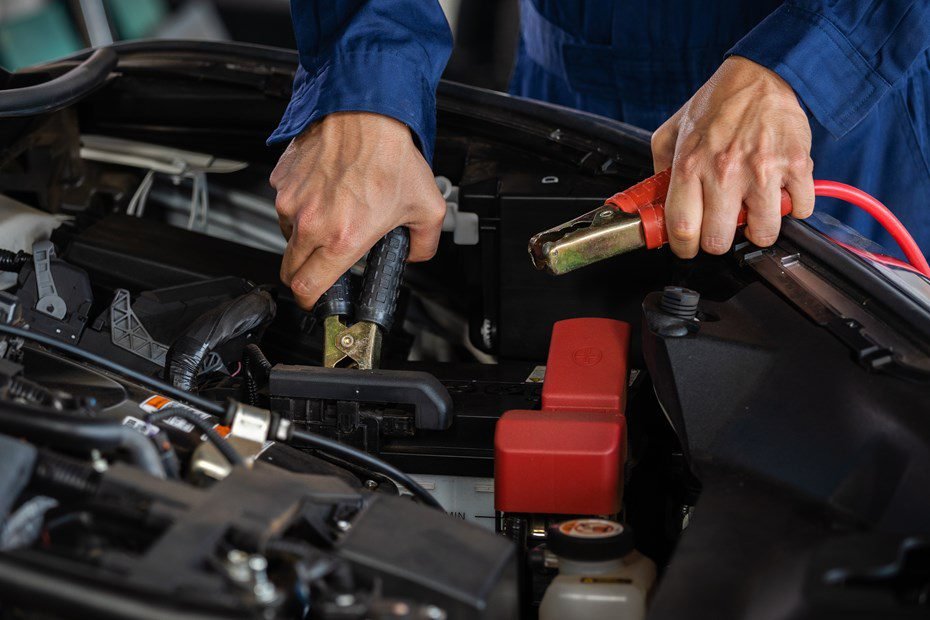Are you sick of how often your car breaks down because the battery is dead? Get ready to do things on your own: learn how to check your car battery on your own. Regular repair not only makes sure that your car starts when you need it to, but it also helps your battery last longer. This complete guide will show you how to check the health of your car battery step by step, along with important safety tips and warnings.
The Beginning
Car batteries are the hidden stars of our cars because they keep everything going smoothly and give the engine the power it needs to start. Ignoring their health can cause them to break down at bad times and cost a lot to replace. Not only does checking your car battery yourself save you money, but it also gives you the information to keep your car in great shape.
How to Tell If Your Car Battery Is Too Weak
For preventative upkeep, it’s important to know how to spot a weak battery. Headlights that dim, an engine that cranks slowly, and warning lights on the dashboard are all clear signs that your car battery needs to be checked. Take charge of your car’s health by doing regular checks. Don’t wait for these signs to get worse.
What You Need to Check Your Own Car Battery
Make sure you have all the tools you need before you start the do-it-yourself project. For a full check, you need a voltmeter, safety gloves, safety glasses, and tools for cleaning batteries. When working with car batteries, safety should always come first.
How to Check the Health of Your Car Battery Step by Step
1. A visual check
First, look at it carefully. Look around the battery for any rust or leaks. Check the links between the cables to make sure they are tight and don’t have any damage that you can see.
2. Check the voltage
A voltmeter can be used to find out how much power your car battery has. Most of the time, a good battery shows between 12.4 and 12.6 volts. Any number below 12 volts means there could be a problem.
3. Testing the load
By doing a load test, you can make the engine start-up conditions more realistic. This helps figure out how well the battery can give power when it’s under a lot of stress. Carefully read the results of the load test to find out how healthy your battery is generally.
How to Take Care of Your Car Batteries
Some easy but effective repair tasks will keep your car battery in great shape. Use anti-corrosion sprays on the battery connections and clean them often. If necessary, check the charge levels. By following these tips, you can avoid many common charge problems.
Common Problems and How to Fix Them
Issues like corrosion connections, low liquid levels, and old or broken batteries happen a lot. Learn how to fix these issues properly to keep your battery from breaking down suddenly and to make sure it lasts as long as possible.
Why it’s a Good Idea to Check Your Car Battery Often
Regular do-it-yourself checks are helpful in many ways. They keep your battery from dying on you when you least expect it, keep you from having to pay a lot for repairs, and more. Preventative battery repair for your car is a small investment that pays off big time.
When You Should Get Help from a Pro
Self-checks are beneficial, but some issues require a professional’s attention. If you’re having complicated electrical problems or your battery needs to be replaced, you should get help from a skilled mechanic.
Effects of Throwing Away Car Batteries on the Environment
Getting rid of old batteries in the right way is very important for the earth. Find the best ways to get rid of things and recycle them to leave as little of an impact on the environment as possible.
Why safety measures are important
Safety should come first when working with car batteries. To avoid accidents, you should always wear safety gear like gloves and glasses and be careful when handling batteries.
How to Replace Batteries Without Spending a Lot of Money
When it’s time to get a new battery, use these easy, low-cost tips. Choose the right battery for your car and make sure it is installed correctly to get the most out of it and make it last as long as possible.
Many People Ask (FAQs): Can I check my car battery without a multimeter?
A voltmeter gives you exact results, but you don’t need one to do a simple eye check and load test. Buying a voltmeter, on the other hand, is suggested for more accurate readings.
How often should I check the battery in my car?
Every month, do an eye review, and every six months, do a full DIY check. Change the timing based on how often you drive and the weather.
Am I safe to check my own batteries?
Yes, as long as you take care to stay safe. Wear safety gear, work in a room with good air flow, and stay away from the battery when you smoke or use open flames.
Any battery will work for my car, right?
It’s very important to choose a battery that fits the needs of your car. To make sure they work together, check your car’s instructions or talk to a professional.
How do I get rid of an old car battery?
Throw away old batteries in a smart way. A lot of shops that sell car parts and recycle centres will take old batteries and get rid of them properly.
In conclusion
Do-it-yourself battery checks are an important part of regular car care. They not only keep your car running well, but they also help it stay healthy in the long run. Learn how your car gets power, follow safety rules, and enjoy the peace of mind that comes with a battery that is well taken care of. Remember that a little work today can keep you from having to deal with the stress of a dead battery tomorrow.



